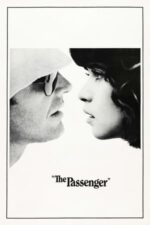More Than Just Wheels: How Trucks Tell Stories On Screen
Okay, so “trucks.” It sounds a bit… specific, doesn’t it? But trust me, when you start looking for them in film, you realize they're everywhere, and often doing more than just hauling cargo. They’re symbols, metaphors, even characters in their own right. We tend to think of trucks as purely functional – a means to an end – but filmmakers have consistently found ways to imbue these workhorses with layers of meaning.
Think about it: the very image of a truck evokes ideas of freedom, ruggedness, and often, a certain kind of American individualism. That’s certainly what Smokey and the Bandit leans into so brilliantly. It's not just about transporting beer; it's about defying authority, embracing a rebellious spirit, and finding camaraderie on the open road. The truck itself – that Trans Am-towing rig – becomes an extension of Bo “Bandit” Darville’s personality: bold, fast, and unapologetically cool. It’s pure escapism, fueled by horsepower and a healthy dose of rule-breaking.
But trucks can represent so much more than just freedom. In Warlords of the 21st Century, for example, they're not symbols of liberation; they’re tools of survival in a brutal, post-apocalyptic landscape. They signify resilience – the ability to keep moving forward when everything else has fallen apart. The truck isn't glamorous here; it's essential, a lifeline in a world stripped bare. It speaks volumes about the desperation and resourcefulness needed just to exist.
And then you have films like Breaker! Breaker!, where the truck driver is an outsider investigating corruption. He’s literally driving through a community steeped in secrets, using his vehicle as both protection and a mobile vantage point. The long haul becomes a metaphor for his journey into darkness, each mile bringing him closer to uncovering the truth – and potentially putting himself in danger.
Even something seemingly lighter like Bonkers uses vehicles—though not specifically trucks—to propel its narrative forward. The girls' journey is about embracing the unexpected, and that sense of movement, of going somewhere new, is intrinsically linked to transportation.
What’s fascinating is how the meaning shifts depending on context. A truck in a comedy might be a source of slapstick humor; in a drama, it could represent isolation or determination. They're incredibly versatile cinematic tools. I remember once watching a documentary about long-haul truckers – the sheer scale of their lives, the loneliness and the responsibility… it really stuck with me. It made me appreciate how often we overlook these vehicles and the people who operate them, even in our entertainment.
So next time you’re browsing for something to watch, keep an eye out for those trucks. You might be surprised at what they're saying. They’re more than just wheels; they’re storytellers on four (or six!) tires.






































